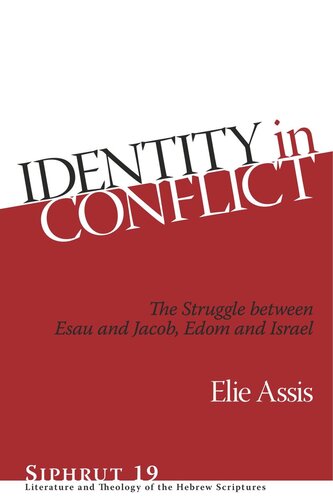

Most ebook files are in PDF format, so you can easily read them using various software such as Foxit Reader or directly on the Google Chrome browser.
Some ebook files are released by publishers in other formats such as .awz, .mobi, .epub, .fb2, etc. You may need to install specific software to read these formats on mobile/PC, such as Calibre.
Please read the tutorial at this link: https://ebookbell.com/faq
We offer FREE conversion to the popular formats you request; however, this may take some time. Therefore, right after payment, please email us, and we will try to provide the service as quickly as possible.
For some exceptional file formats or broken links (if any), please refrain from opening any disputes. Instead, email us first, and we will try to assist within a maximum of 6 hours.
EbookBell Team

0.0
0 reviewsNo nation has been subjected to a wider range of biblical attitudes and emotions than Edom. In some sources, Edom is perceived as Israel’s brother; in many others, the animosity toward Edom is tremendous. The book of Genesis introduces Isaac, his wife Rebecca, and their twin sons, Esau and Jacob. Rivalry between the brothers emerges even before their birth and escalates over the course of their lives. The question of which son should be favored also causes tension in the parents’ relationship, and most of the Genesis text concerning Isaac and Rebecca revolves around this issue. The narrative describes the fraternal conflict between Jacob and Esau at length, and many hold that this description is a reflection of the hostility between Edom and Israel. However, the relationship between the brothers is not always depicted as strained.
The twofold relationship between the brothers in Genesis—brotherhood and fraternity coupled with hatred and rivalry—introduces a dichotomy that is retained throughout the Hebrew Bible. In this monograph, Assis elucidates the complex relationship between Edom and Israel reflected in the Bible, to attempt to clarify the source of this complexity and the function that this relationship serves in the various biblical texts and Israel’s early history. He shows how this relationship plays an important role in the formation of Israel’s identity, and how the historical interaction between the nations influenced the people’s theological conception, as reflected in prophetic literature, poetry, and biblical narrative.